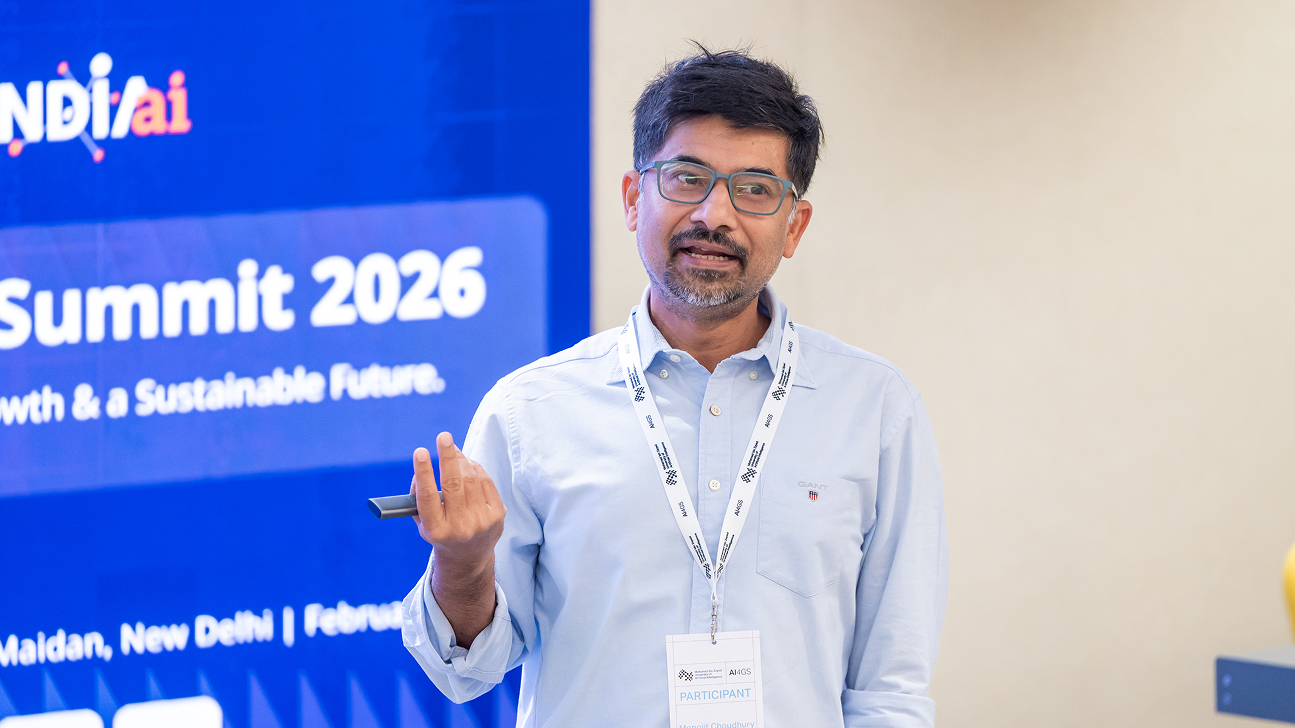Creating certainty through uncertainty
Friday, July 29, 2022

From biology to physics to chemistry and more, the study of causality is used to answer big, important ‘why’ questions. At the most basic level, this is why all research is undertaken — to isolate and better understand why things happen.Getting deep into the mechanics of why things happen — into the minutiae of how X causes Y — is the focus of MBZUAI Professor Kun Zhang’s work. His research delves into the murky waters of cause and effect, particularly as it relates to algorithms and artificial intelligence systems.
“In our research, we try to go beyond the data — we try to recover the underlying processes from data so that we can understand what is really going on,” Zhang said. “We care deeply about causality and graphical representations of the process, which involve all kinds of hidden, actionable variables. If you recover all of those things, then you can start to develop a model for why and how the system produces such observations, account for that uncertainty in the data, and ultimately use that uncertainty to perhaps paradoxically, create greater certainty in your data.”
This year, Zhang is serving as a program chair at the 38th Conference on Uncertainty in Artificial Intelligence (UAI), which is being held in Eindhoven, Netherlands, on the campus of the Eindhoven University of Technology. UAI is a relatively small, yet elite conference with only around 36 plenary presentations and 194 spotlight presentations in a single track related to all aspects of AI, especially to graphical models, causality, and inference. Zhang himself has given four of these plenary presentations in the past.
Zhang got interested in causality during his doctoral studies at a time when “the prevailing orthodoxy in machine learning was not to worry about causation, just focus on correlation. But that didn’t make sense to me,” Zhang said. “Even machine learning systems actually play a causal role in human life and society. Whenever we deploy AI systems, human society can be changed —it is always a causal process and we must fully understand it.”
In data, there is always uncertainty. And to ignore this fact can lead to disaster. Zhang believes uncertainty is one of the foundational problems in artificial intelligence, in particular. It is the starting point for some of the most exciting research being done today, and it is why conferences such as UAI are such vital, global points of connection for people thinking and working in these areas.
“Whenever you make decisions, classifications, recommendations and so on, you, in principle, have to understand the uncertainty, and either try to reduce it, or make use of it to achieve something certain.”
“You must understand, knowledge and uncertainty are inextricably linked. From this perspective then, you must intentionally quantify, make sense of, and reduce or formalize and utilize uncertainty in data.”
Advancing ML research at global conferences
 Apart from his role at UAI, Zhang served as a general and program chair of the 1st Conference on Causal Learning and Reasoning (CLeaR) conference in April 2022.
Apart from his role at UAI, Zhang served as a general and program chair of the 1st Conference on Causal Learning and Reasoning (CLeaR) conference in April 2022.
“Causality is a fundamental notion in science, and it is an essential component of artificial intelligence that is interpretable, transparent, and trustworthy,” Zhang said. “However, it is largely overlooked in traditional machine learning. We established an annual CLeaR conference to promote causal thinking, learning, and reasoning in artificial intelligence, with the goal of achieving a higher level of intelligence that can reason like humans, but more powerfully,”
Alongside his duties at MBZUAI as an Associate Professor in the Machine Learning Department, Zhang also maintains an associate professorship at Carnegie Mellon University.
His research interests lie in machine learning and artificial intelligence, especially in causal discovery and causality-based learning. He develops methods for automated causal discovery or causal representation learning from various kinds of data, investigates learning problems including transfer learning, representation learning, and deep learning from a causal view, and studies philosophical foundations of causation and various machine learning tasks.
On the application side, he is interested in neuroscience, computer vision, healthcare, computational finance, and climate analysis.
Related
AI and the silver screen: how cinema has imagined intelligent machines
Movies have given audiences countless visions of how artificial intelligence might affect our lives. Here are some.....
- cinema ,
- AI ,
- artificial intelligence ,
- art ,
- fiction ,
- science fiction ,
Mind meld: agentic communication through thoughts instead of words
A NeurIPS 2025 study by MBZUAI shows that tapping into agents’ internal structures dramatically improves multi-agent decision-making.
- agents ,
- neurips ,
- machine learning ,
Balancing the future of AI: MBZUAI hosts AI for the Global South workshop
AI4GS brings together diverse voices from across continents to define the challenges that will guide inclusive AI.....
- representation ,
- equitable ,
- global south ,
- AI4GS ,
- event ,
- workshop ,
- languages ,
- inclusion ,
- large language models ,
- llms ,
- accessibility ,


